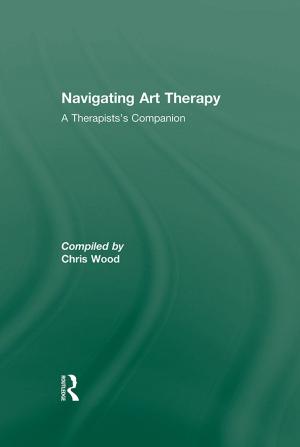On Sublimation
A Path to the Destiny of Desire, Theory, and Treatment
Nonfiction, Health & Well Being, Psychology, Mental Health| Author: | Rossella Valdre | ISBN: | 9780429917042 |
| Publisher: | Taylor and Francis | Publication: | May 1, 2018 |
| Imprint: | Routledge | Language: | English |
| Author: | Rossella Valdre |
| ISBN: | 9780429917042 |
| Publisher: | Taylor and Francis |
| Publication: | May 1, 2018 |
| Imprint: | Routledge |
| Language: | English |
This book explores and revisits the concept of sublimation, in its various aspects and implications that it has in theory and clinical psychoanalysis, and also in its broader socio-cultural aspects. The basic assumption that aroused the author's interest in the topic is a certain surprise in observing how sublimation in psychoanalysis is in general spoken about less in contemporary discourse: so is it an outdated concept, an endangered species? Does it belong to the archaeology of psychotherapy? Or, on the contrary, is it so much a part of analytical practice and so well established and implicit in theory that it is not necessary to discuss it any more? It is the prevailing opinion of the author that sublimation is nowadays expressed differently and has undergone a sort of anthropological mutation, as has happened to several Freudian concepts with the changing historical and cultural contexts.
This book explores and revisits the concept of sublimation, in its various aspects and implications that it has in theory and clinical psychoanalysis, and also in its broader socio-cultural aspects. The basic assumption that aroused the author's interest in the topic is a certain surprise in observing how sublimation in psychoanalysis is in general spoken about less in contemporary discourse: so is it an outdated concept, an endangered species? Does it belong to the archaeology of psychotherapy? Or, on the contrary, is it so much a part of analytical practice and so well established and implicit in theory that it is not necessary to discuss it any more? It is the prevailing opinion of the author that sublimation is nowadays expressed differently and has undergone a sort of anthropological mutation, as has happened to several Freudian concepts with the changing historical and cultural contexts.















